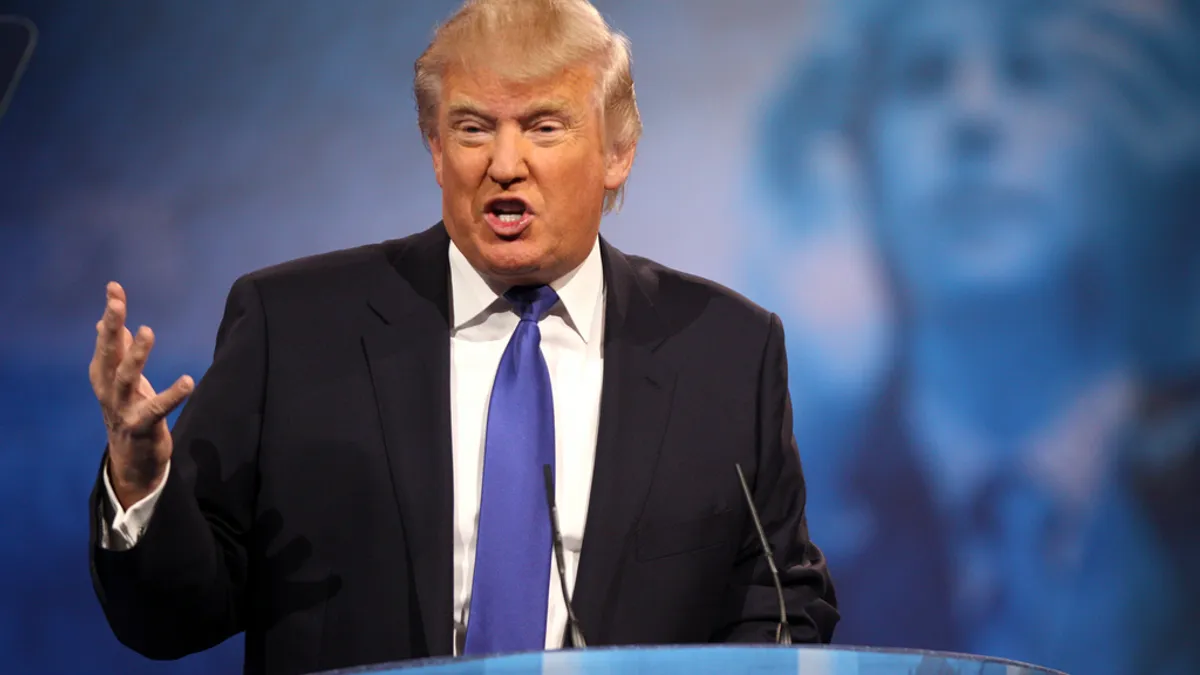Dive Brief:
- The day after the presidential election and Donald Trump’s declared victory as the nominee, GrubHub CEO, Matt Maloney, sent out an all-staff letter stating that there’s "no place" in his company for demeaning, insulting and overall inappropriate behavior. The Hill reported that the online food service founder was clear about not tolerating the behavior that came to symbolize the Trump campaign.
- Anyone that berates people based on race, immigration status or mental or physical disability doesn’t belong at GrubHub, Maloney wrote. He expressed an intolerance for what he called the "nationalist, anti-immigrant" rhetoric of Trump, and vowed to stand up for the dignity and rights of anyone in the company who felt afraid or exposed by it. He also wrote that any employees who disagreed with his statement should reply with their resignation.
- But after his letter went viral and raised negative comments, Maloney walked back his statement. Maloney, who supported Hillary Clinton in this year's presidential election, tried to clarify his original letter with a follow-up statement. He said what he meant was that discrimination wasn’t tolerated at GrubHub, and that he valued all employees, including those who supported Trump.
Dive Insight:
Maloney had the foresight to backtrack on his original statement, although some of the damage may have already been done. Unless his first letter was a response to some “Trump-like” behavior that had already occurred at the company, he was basically calling out behavior he anticipated but hadn’t yet happened. He would have been right to speak out against bad behavior that he or others had witnessed; then he could communicate the company’s zero-tolerance discrimination policy to all staff and the consequences for any violators.
Maloney’s first letter not only had an accusatory tone, it also unfairly singled out Trump supporters. It showed the kind of political partisanship that causes conflicts between employees and slows down productivity. During emotionally charged times, like the 2016 election, employers can avoid adding to the contention by encouraging collaborative behavior in the workplace.








